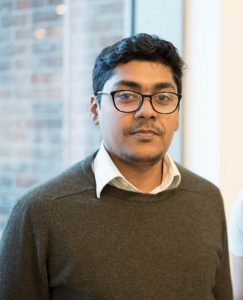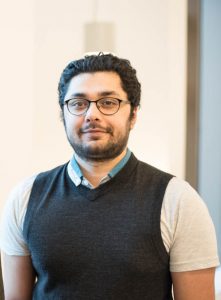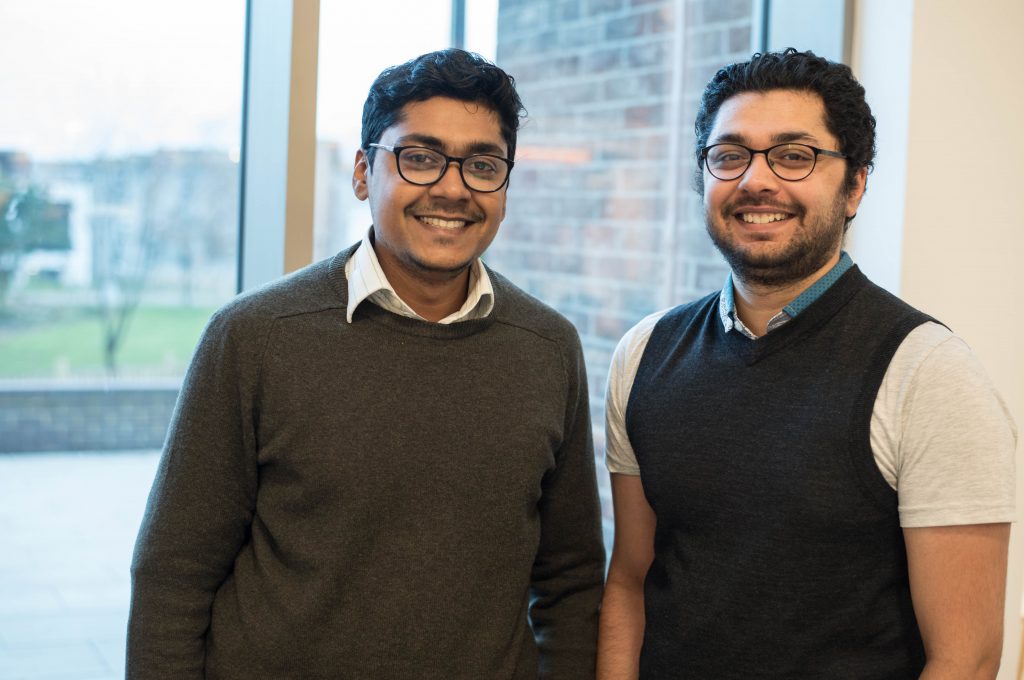It may not be that unusual for a student to study both their LLM and PhD in Law at Kent but it’s certainly more unusual for two brothers to be pursuing their postgraduate studies at Kent Law School at the same time! We caught up with Ahmed and Osama Memon from Pakistan to find out more about their unique experience of studying Law at Kent…!
Both Ahmed and Osama were impressed by Kent’s reputation and league table rankings but it was the award of a Kent LLM scholarship that sealed the deal for Ahmed. He completed his LLM in International Law at Kent in 2014 and returned the following year to begin his PhD. Osama began his LLM studies in September 2017 and said that Ahmed’s experience was one of the most important factors in leading him to choose Kent Law School: ‘What finally convinced me was Ahmed’s experience and his positive views about Kent’s academic tradition, and the quality of research and teaching. Ahmed and I have a very similar background and interests. We went to the same school, and we did the same undergraduate degree, which was the distance learning University of London LLB (Hons). I had a very specific idea about what I wanted from my postgraduate experience, and I felt that Ahmed’s experience was very close to what I was looking for.’
For Osama, coming to Kent was his first experience of living away from home so he’s been happy to take his younger brother’s advice on a lot of things – from shopping and cooking to research and writing: ‘And since we live together in Kent, I have tried to return the favour as best I can by helping with the dishes, cooking and cleaning, and grocery shopping. But I think the part that we enjoy the most is discussing our ideas and views with each other on different legal issues or problems. I am sure I am speaking for the both of us when I say that It just helps to have someone who knows your background, interests and opinions to listen to you and give you a proper feedback.’

Despite Osama choosing a different LLM pathway to his brother, Ahmed says they have a lot in common with respect to their studies: ‘There are many intersections about our opinions about law and how it operates. The law school’s culture of critical thinking in asking questions about what the law is and how it works is a common ground for us. So, we end up asking each other about references on broader themes and topics that we have a shared interest in.’
Before coming to Kent, Osama was working as a legal practitioner with a focus on immigration, taxation, customs, land, constitutional law, and succession. One of his main reasons for choosing to study an LLM was to develop his interest and skills in International Commercial Law, particularly trade law, arbitration and intellectual property – much of the work he did as a practitioner was in these areas. Osama said: ‘Another reason for my interest is that these areas of law give me an understanding of how the global political-economy works, and why the law is the way it is. I think that this is where Kent Law School’s critical legal perspective really helps. Subjects that normally people would expect to be doctrinal are taught with different critical or multi-disciplinary perspectives.’
Ahmed’s main interests lie in public international law, or specifically historical approaches to international law. He said: ‘I am particularly drawn to how we can understand contemporary problems by re-examining the history of international law as a discipline. I think history as an approach to understand law is just fascinating in a way which it reveals to us very different stories and realities about how things were – and in many ways – how they then develop. Thinking about the past can really have a bearing on what we know and do not know about our present.

‘My research delves (if not in so much depth) into critical perspectives of political economy, international global order and issues of global governance. Having to talk to Osama about these broader topics is always a learning opportunity as we both bring different interdisciplinary ways of thinking about these issues from the perspective of our specific interests.’
Ahmed’s doctoral thesis is tentatively titled ‘Network Governance and violence: A Critical Third World Approach to International Law History.’ He said: ‘My project is drawing on a critical, historical approach to re-examine how different forms of violence through transnational institutions are rendered invisible by the orthodox understanding and application of international law. This particular project makes the case that the unaccountable violence of the contemporary counter terrorism networks, such as US Special operation forces, can only be understood by understanding how international law historically approached transnational institutions and their violence. My project sketches the history of this relationship between the violence of transnational institutions and international law from the 17th Century Holy Roman Church, Commercial networks of the 18th Century, international organizations and policy/regulatory networks in the 20th Century and finally counter terrorism network of the post 9/11 era.’
In addition to his studies, Osama also has duties at Kent Law School as an LLM Student Representative: ‘As a Student Rep, my main duties include acting as a link between my class, Kent Union and the University, and to take any issues that the students have to the appropriate body or forum in the University. As a Student Rep, I am also invited to attend meetings within Kent Union or the School, such as the Student Staff Liaison Committee, or the Graduate Studies Committee, where I can discuss or raise relevant issues that the students feel are important.’
Once Osama completes his LLM, he expects to be heading home to Karachi to work in a corporate law firm. But he’s not closing the door on the possibility of further study: ‘My time here at Kent has also inspired me to consider pursuing a doctorate in the foreseeable future.’
Ahmed is clear that he wants to stay in academia: ‘I’d like to find a teaching job and continue doing research within my area of interest. Perhaps sometimes in the future, it would be interesting for us to do a collaborative project combining some theoretical aspects of my research with Osama’s interest in global trade and commercial regulation.’
The brothers agree that studying together at Kent has been a source of “massive mutual support”: ‘We can share everyday, mundane but absolutely necessary burdens. Small things such as cleaning and cooking, to getting a book from the library or getting together to eat on campus when we take breaks in between studying all become part of our everyday life. The only downside is probably the amount of coordination required when studying and living together!’ But, despite having each other to lean on, both believe it’s the friendships they have made during their time at the Law School which has made their experience at Kent particularly valuable.

